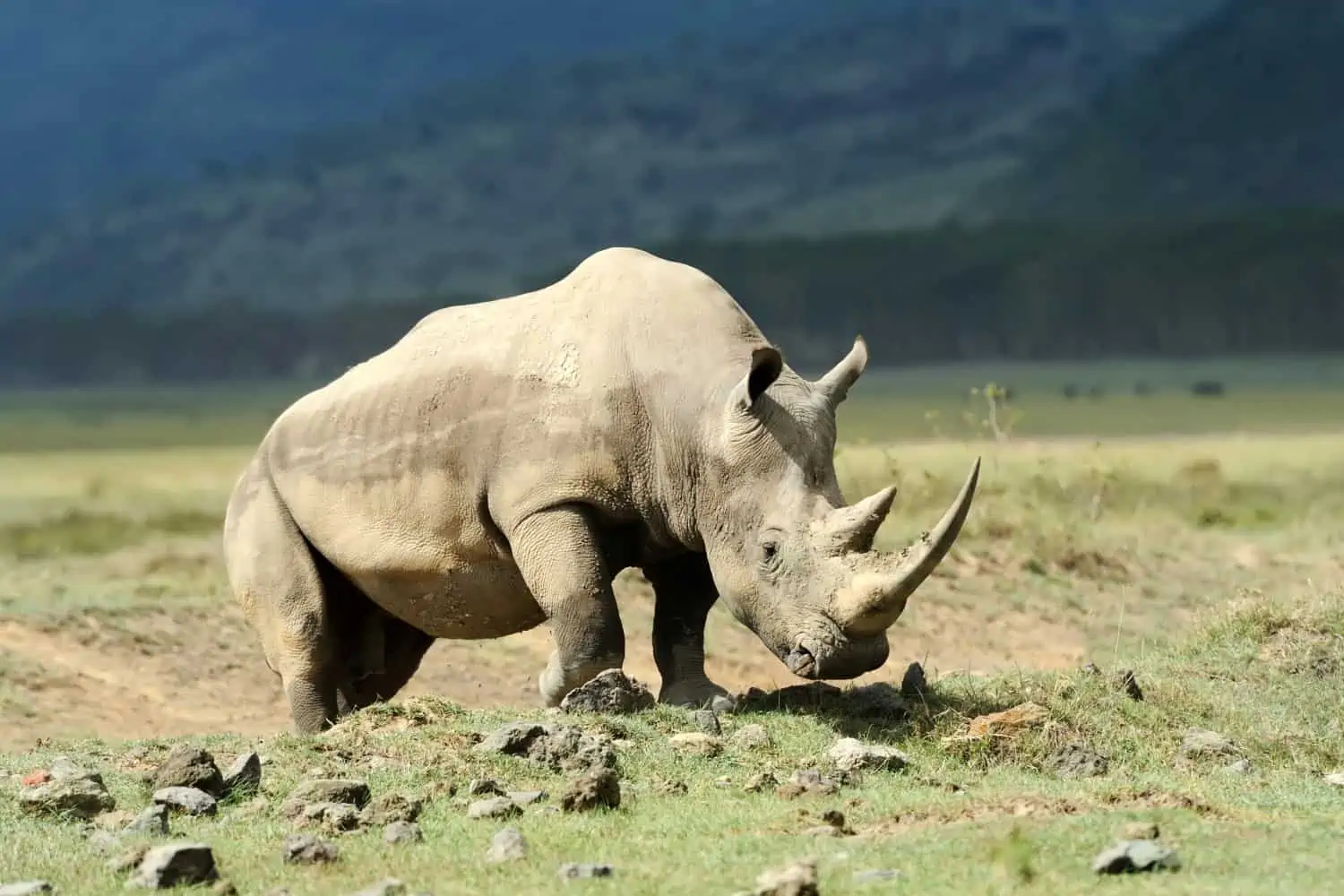The department of Forestry, Fisheries and the Environment has reported a steady decline in Rhino poaching within the Kruger Park. And a total 24% decrease over the whole country since 2019. Although the number of poachings within the private sector has gone up. The department is working hard to protect those within government reserves. Plus, they hope that joint anti-poaching efforts with private landowners can help further reduce the numbers.
Rhino Poaching within Government Reserves
On Tuesday, 8 February, Minister Barbara Creecy stated a total of 451 rhinos fell prey to poachers in South Africa during 2021. Of these, 327 poachings took place within state-owned reserves. With 204 of the 327 from inside the Kruger National Park. Minister Creecy points out, “This was in fact a decrease in comparison to 2020, when 247 rhino were poached within the national parks. It is important to note that none of SANParks’ smaller rhino parks experienced any rhino losses from poaching in 2021, in comparison to the two rhino that were poached in 2020”.
With regards to arrests, in 2021 there were 189 arrests in connection with poaching activities. 77 of which came from within the Kruger National Park. This is a great improvement on the 156 arrests in 2020.
The department gives thanks to the police’s endangered species unit and the SANParks environmental crimes inspectorate. Who’s close relationship has led to an increase in arrests and convictions. The Kruger Park itself is also to thank for its advancing anti-poaching activities.
Rhino Poaching on Private Property
Of the total 451 rhino poachings, 124 took place on private property. Showing an increase compared to previous years. The department says that as a result of increased anti-poaching efforts “One of the unintended consequences is that poaching syndicates are looking to other areas for easy prey”.
However, Minister Creecy says, “South Africa remains committed to safeguarding the country’s rhino populations, and will continue to work tirelessly, alongside the private sector, committed non-governmental organisations (NGOs), as well as authorities in transit and destination countries, to combat wildlife crime”.
Rhino Dehorning
SANParks, provincial nature reserves, and private rhino owners are dehorning rhinos to deter poachers. While also improving current anti-poaching initiatives. As well as investigating the feasibility of additional actions. With an emphasis on apprehending poachers and establishing additional founder populations outside the Kruger National Park.
The Minister adds “Information collected and communication flows through the Environmental Enforcement Fusion Centre (EEFC), which continues to support the teams at both a tactical level and strategic level. Our analysis capabilities have also improved, resulting in the increased identification of those involved in rhino poaching and trafficking improved and expanded investigations by multi-disciplinary teams”.
